Car boot seals, also known as edge trims with top seals, are widely used in cars, vans, and other automotive vehicles to protect edges and provide a durable watertight seal. While they are primarily designed for sealing boots, the sponge sealing bulb positioned on the top of the edge trim, makes them versatile for any application where a lid closes directly onto the top of a protruding panel edge. This includes bonnets, doors, and other vertical panel applications.
Boot seals are composed of two main parts: a metal-reinforced edge trim that securely clips onto the panel edge, and a compressible sponge rubber sealing bulb that forms the seal. The metal spine within the trim provides strength to withstand impact and protects the underlying surface, while the closed-cell sponge rubber bulb resists water absorption and moisture penetration.
Boot seals are available in various sizes to suit different edge thicknesses and gaps. To select the right boot seal for your vehicle, measure the thickness of the panel edge and the size of the gap to be sealed. For optimal sealing, choose a sponge sealing bulb that is approximately one-third larger than the gap. For instance, a boot seal with a 12mm diameter top seal is ideal for a 8mm gap.
Most of these products are sold by the linear metre and consist of the same profile along the entire length of the section. This universal style is found on some cars, but may not be suitable for newer vehicles which have moulded corners or where the sealing profile changes along its length.
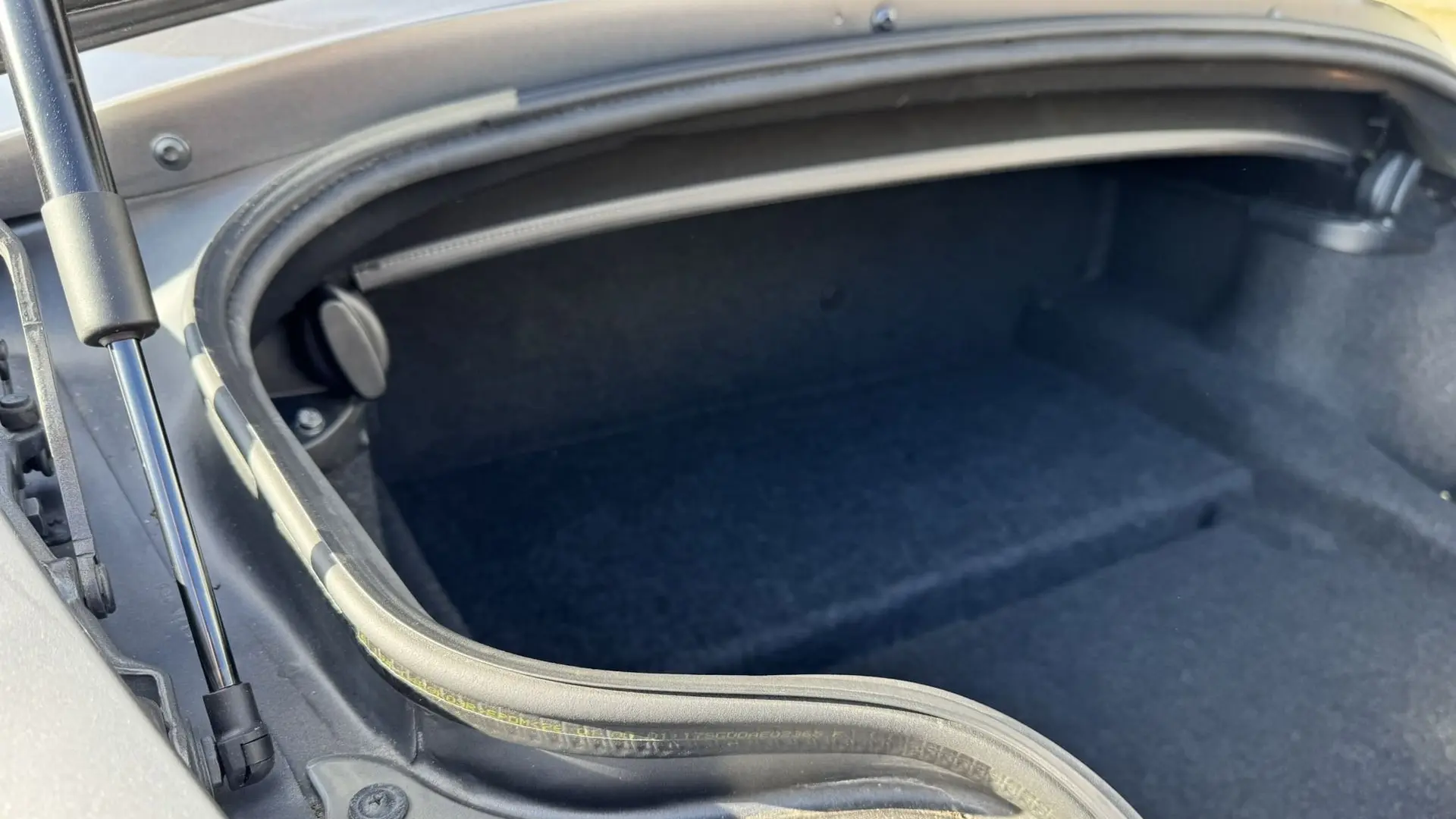
This car boot seal has the same profile along its entire length. Our universal rubber seals should work as a suitable replacement.
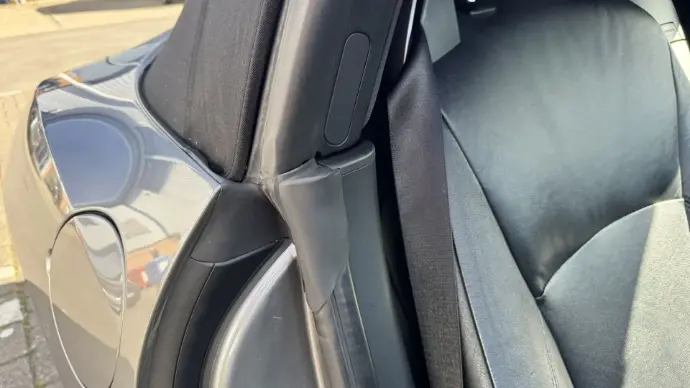
This boot seal has moulded corners and cannot be replaced with a universal section. You will need to contact the original manufacturer.
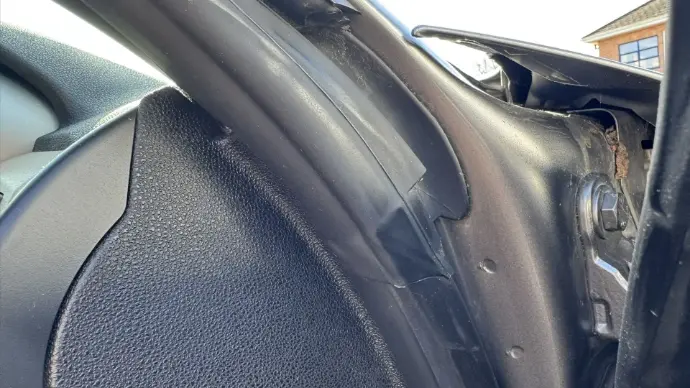
This boot seal changes profile part way along its length. You will need to contact the original manufacturer for a replacement.
This Seals Direct guide explores the various types of edge trim and explains the key measurements to take before selecting a suitable replacement.
Step 1: Identify the Type of Edge Trim
There are three main types of edge trims;
A) Edge Trims
B) Edge Trims with Top Seal
C) Edge Trims with Side Seal
Most car boots are fitted with an edge trim with top seal. This type of product fits over a protruding edge where the boot closes down onto the top of this edge. This allows the sponge sealing bulb to compress and create a watertight seal when the boot is closed.

The following steps within this guide discuss how to identify and replace this type of product. If your current sealing profile resembles an edge trim or an edge trim with side seal, please take a look at our How to Identify and Replace a Car Door Seal or How to Identify and Replace an Edge Trim technical help guides.
Step 2: Measure the Panel Thickness
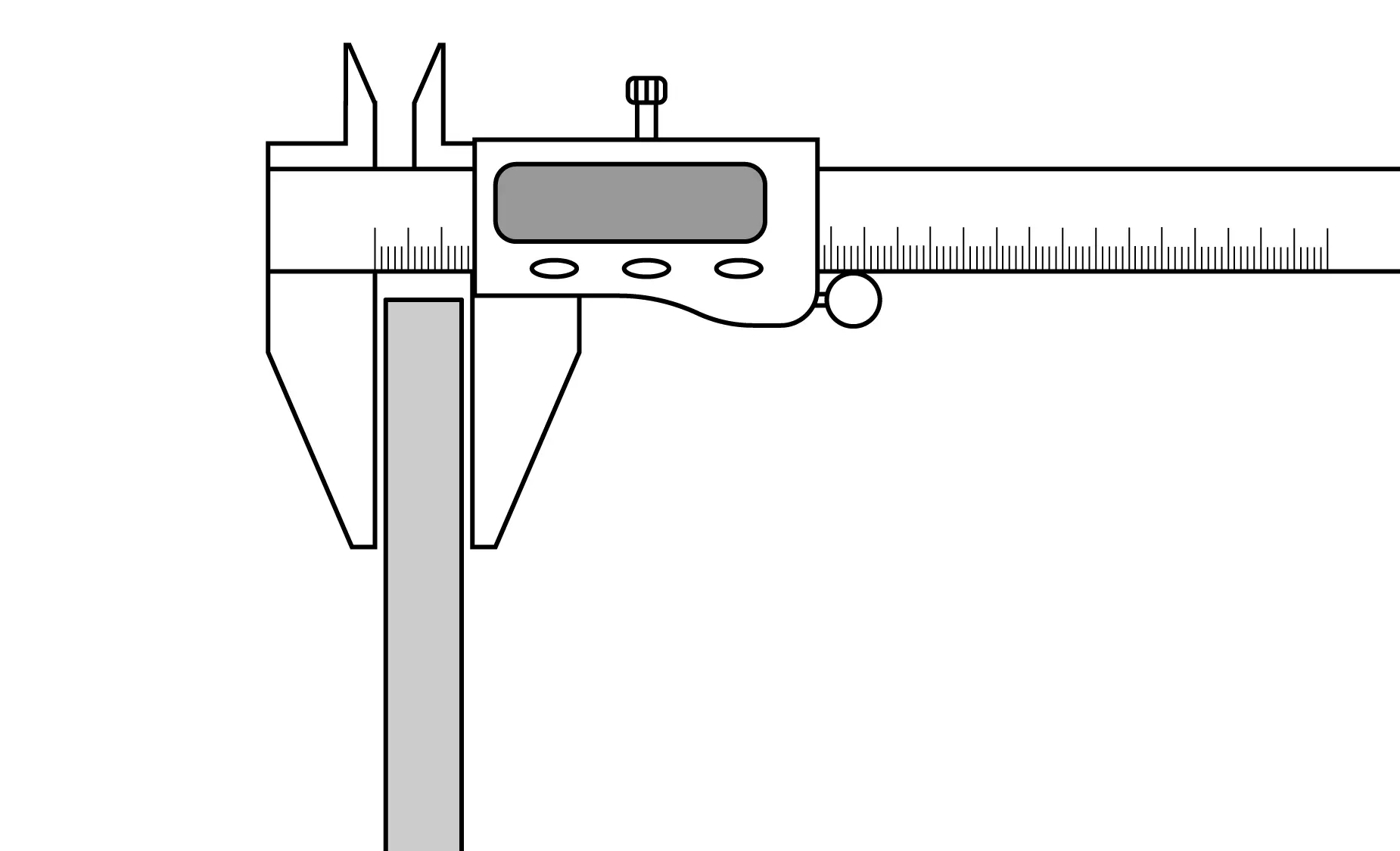
The first stage in identifying a replacement car boot seal is to measure the panel edge thickness. This is the panel edge where the new section will be fitted. In most vehicles, this edge typically ranges from 1.5mm to 5mm thick. However, the exact thickness may vary depending on your vehicles construction and whether you also need to fit the seal over any other internal boot linings.
To ensure that you take an accurate measurement, we recommend using a Vernier to measure the panel thickness. This will allow you to choose a replacement product that fits securely over the panel edge without being too loose. You should take this measurement in millimetres so that you can cross reference your measurements against the products on our website.
Step 3: Measure the Gap Between the Edge and Car Boot
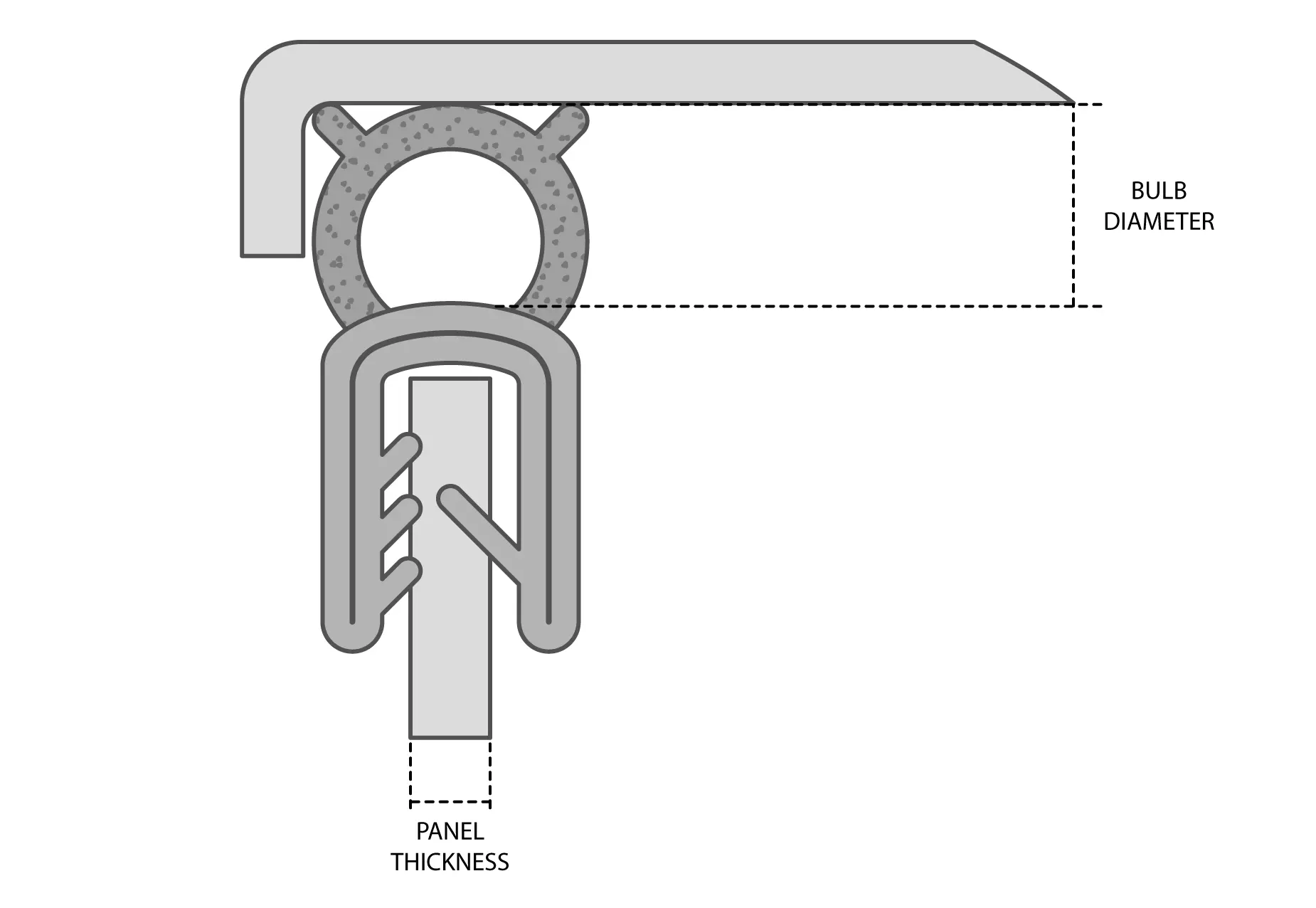
The compressible sponge bulb on the top of the section helps form a watertight seal when the boot is closed. Before identifying a replacement product, you will need to measure the diameter of this sealing bulb on your existing seal. If the bulb is distorted from years of over-compression, gently squeeze it until it returns to its original circular shape. This will allow you to take the measurement in what was once its original form.
If you no longer have the original boot seal, you will need to measure the gap between the panel edge and boot in its closed position. As this gap will be obstructed by the boot lid when the boot is closed, it is often difficult to get access to measure this area. One way of taking this measurement is to use a piece of Blu-Tack. Open the boot and place the Blu-Tack on one edge. When you close the boot, you will compress the Blu-Tack to the precise thickness of the gap you need to seal. You can then measure the thickness of the compressed Blu-Tack.
For optimal performance, we recommend compressing the sponge sealing bulb by approximately 30%. This ensures a strong watertight seal while minimising the risk of compression set. For example, if the gap you need to seal is 10mm, choose a replacement seal with a sponge bulb diameter of about 14mm to 15mm. When the door is closed, the bulb will compress by roughly one-third, effectively sealing the 10mm gap.
Step 4: Order a Replacement Car Boot Seal
After measuring the diameter of the sealing bulb or the size of the gap you need to seal, and the thickness of the panel edge, you can order a replacement section.
Seals Direct is here to assist you in finding the best car boot seal, edge trim, side seal or top seal for your application. As a leading supplier of rubber seals and trims, we offer an extensive inventory of over 760 stocked products.
Contact our technical team by email at sales@sealsplusdirect.co.uk or via phone on 01425 617722 for help and advice with selecting the best product for your application.